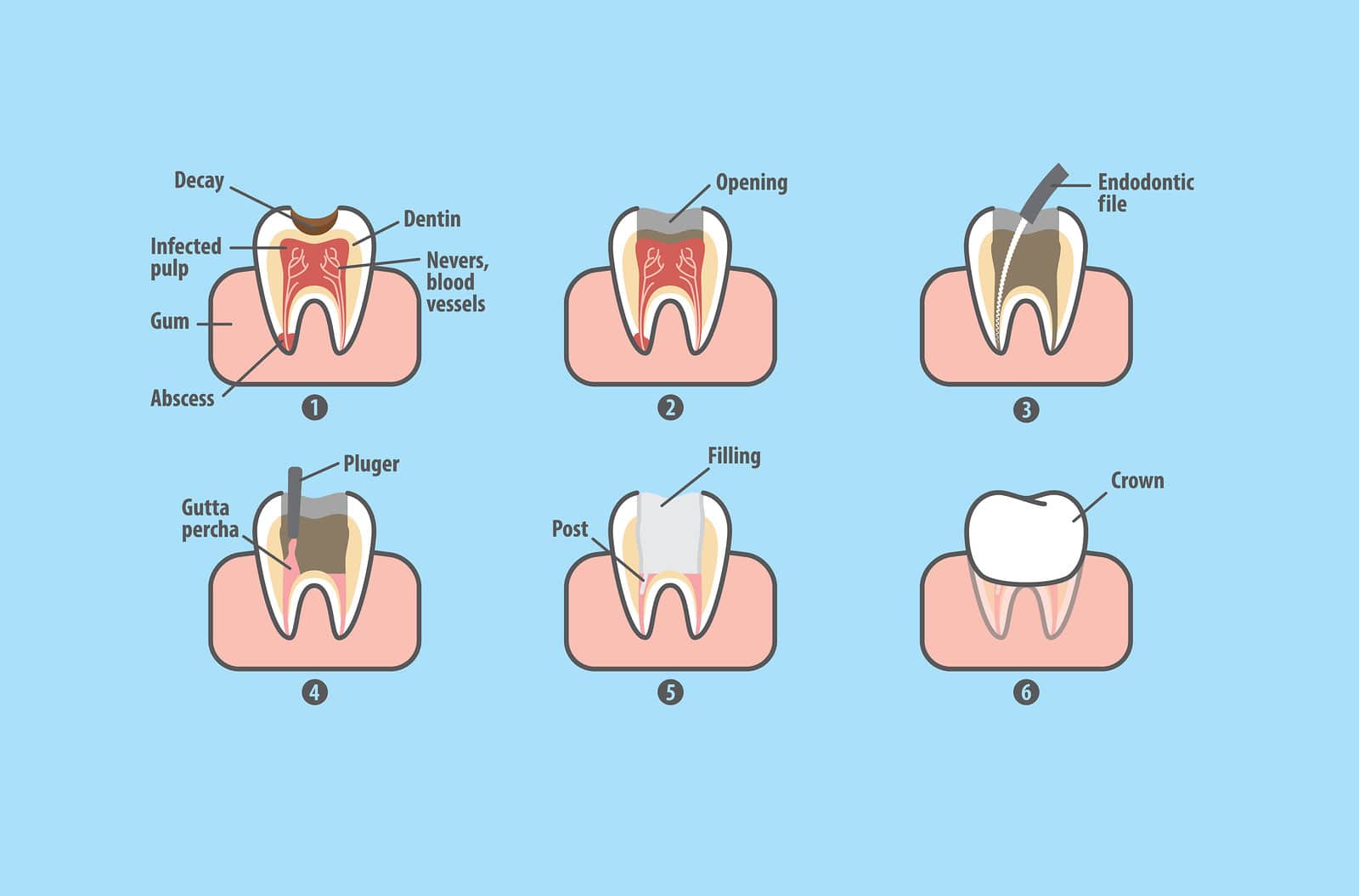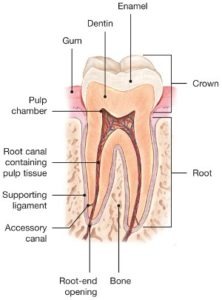
Yes in most cases a dentist will give you a local anesthesia before a root canal procedure. If you use sedation dentistry a root canal is nothing serious at all.

To protect your tooth from bacteria in your saliva during the treatment the dentist places a rubber dam around the tooth being treated.
Root canal local or general anesthesia. It is usually best to have local anesthesia for a root canal so that it can be a painless procedure. Yes all root canal procedures are done under local anesthesia. Endoroot canal treatment is very predictable and in almost all cases is pretty much painless.
Yes to make you comfortable anesthesia is used. Can root canal treatment be done under general anesthesia. It most certainly can.
For patients that suffer from extreme anxiety and are unable to bear the thought of getting dental treatment done general anesthesia is an option for sure. Local anesthesia is absolutely necessary for performing root-canal treatment. Local anesthesia is usually used for root canal treatment.
In these cases the tooth surrounding teeth and associated soft tissue will be numbed. It is rare that general anesthesia be used for root canal treatment. Root canals are generally treated using a local anesthetic you can decide up to the time you are sitting in the chair.
Local anesthesia can be a pain relief to people who have a low tolerance to pain or anxiety on doing procedures. Local anesthesia or anesthetics prevents your nerves from communicating sensations in the affected area while under a procedure. Compared to the general anesthesia local anesthesia will keep you awake and aware but relax.
As local anesthesia lasts for a short time you immediately drive. In the majority of cases a general dentist or endodontist will perform a root canal while youre under local anesthesia. Learn more about this common procedure as well as the potential risks.
The goal of local anesthesia for root canal procedures is to anesthetize the pulpal neurons and the periapical area. This is best achieved by delivery of the local anesthetic at the root apex. 7 However the cortical bone of the body of mandible can essentially block the anesthetic during a local infiltration at the root apex.
The maxillary cortical bone is generally thinner. Diffusion of the anesthetic through this bone. Most Dentists or.
Oral surgeons will do root canals under straight local anesthetic la. Rarely is any other kind of sedation needed. I can tell you that after having three root canals the la was quite sufficient.
I later used some Motrin when the block wore off. Hope that this helps. Yes in most cases a dentist will give you a local anesthesia before a root canal procedure.
However it is not mandatory. The dentist will examine the tooth if it is vital or non-vital. Vital teeth are painful when proceeding for a root canal procedure so a local anesthesia becomes a must.
The answer is no. Getting a root canal feels very similar to getting a filling. Most people are absolutely fine with just local anesthesia to numb the area around the tooth.
Richard Marcus and our friendly team understand that some people are very nervous about root canals have a severe gag reflex or have a genuine fear of going to. Administration of Exparel theoretically providing local anesthesia for up to 72 hours because of the slow release of bupivacaine as an infiltration it is not approved for nerve blocks did not reduce pain to manageable clinical levels in patients with untreated symptomatic irreversible pulpitis 24 or postoperatively following debridement in symptomatic patients diagnosed with pulpal necrosis and. The point of the root canal is to remove the nerve-containing pulp.
The tooth is dead after the root canal not before–in general anyway. Soshes thinking of having nerves removed that are inside a shell of the hardest substance in the body without anesthetic. Sweet Jesus I cant even imagine how much that would hurt.
The use of local anesthesia ensures a painless procedure and root canal recovery time can be expected to take only a few days. When Is Root Canal Treatment Necessary. The purpose of a root canal is to repair a tooth that has been damaged from tooth decay infection or fracture.
Post-operative data sheets and periapical radiographs were collected for 255 permanent teeth treated under GA during a 4-year period GA group 125 patients with special needs and for 246 permanent teeth treated under local anaesthesia over 7 months LA group 180 healthy patients. The radiographic criteria for quality of endodontic treatment RCQET were considered satisfactory. Root canals get their name from the area of the tooth the procedure treats.
A tooths root canal is the space that houses dental pulp and the tooths nerve. A root canal procedure gets rid of infection or decay before it spreads saving your tooth. Although the name of the treatment strikes fear in many people todays root canals arent like the ones of decades past.
Scaling and root planing requires the administration of local anesthesia also referred to as a membrane-stabilizing drug to help control pain and hemorrhage. Local anesthesia is the most common type of anesthesia used. How is a root canal treatment done.
The dentist gives you a local anesthetic freezing. To protect your tooth from bacteria in your saliva during the treatment the dentist places a rubber dam around the tooth being treated. The dentist makes an opening in the tooth.
What Is Local Anesthesia. Local anesthesia is used to make a very small specific area of your body temporarily unable to feel sensations including pain. Examples of procedures requiring local anesthesia include fillings crown placement root canals.
A local anesthetic works by blocking nerve cells in a specific area from sending pain signals to your brain. Many people having root canals or having apical surgery will choose general anesthesia. General anesthesia may be necessary if local anesthesia fails to anesthetize the surgical site which often occurs in the presence of infection.
This is an excellent choice for special needs patients un-cooperative pre-cooperative very anxious or dental phobics. Hospital or Surgery Center Based General Anesthesia. A root canal procedure sounds scary but with todays technology its typically not a whole lot more different than having a deep filling.
Theres little to no pain because your dentist will use local anesthesia to numb your tooth and gums so youre comfortable during the procedure. If you use sedation dentistry a root canal is nothing serious at all. If a root canal is necessary and you are putting it off because of pain or anxiety it may lead to a serious infection or an abscess if you choose not to have it done.
What is a Root Canal. When you have a root canal there is an opening made to the crown of your tooth. The dentist removes the pulp of the tooth down to the tip of.
How To Make Dental Anesthetic Wear Off Faster. Posted on December 7 2019 by Bell Harbour Dental. Many dental procedures require the area of the mouth that is being worked on to be numb.
For this dentists use local anesthesia. You have probably experienced local anesthesia.